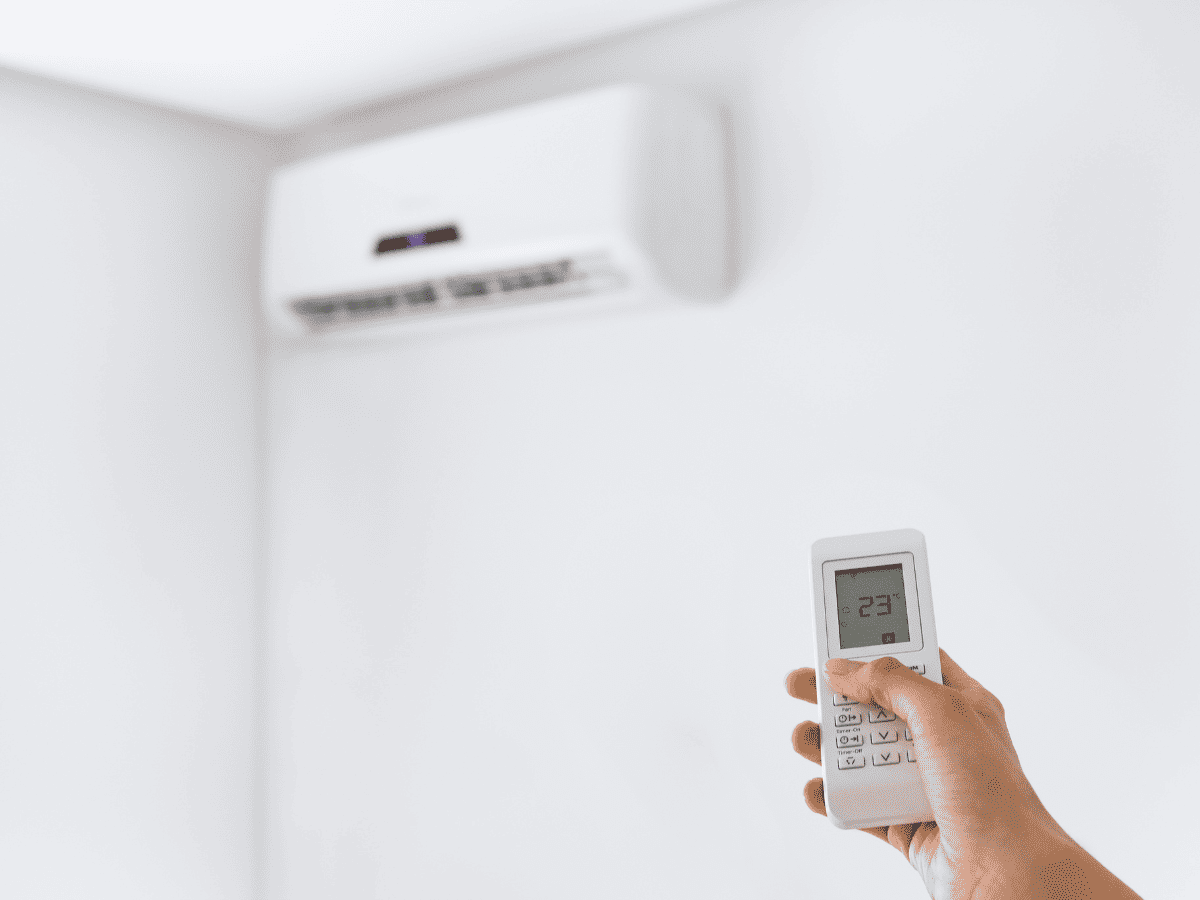During the warmer weather, many homeowners use their air conditioners all day and into the night.
When exposed to drier air and higher temperatures, it’s normal to wonder if a humidifier air conditioner combination can be used. After all, while AC units cool and remove humidity from the air, humidifiers add water to it instead.
Using a humidifier to regain the moisture that an AC removes makes practical sense. However, many homeowners still worry and wonder if doing so is really ok. For this reason, in this article, we investigated the possibility of using humidifiers and AC units simultaneously and their benefits, as well as other things to consider.
If you want more information on your humidifier and air conditioner or want to upgrade your home’s current units, contact our team at Hurliman Heating & Air Conditioning.
How Air Conditioners Function
When an air conditioner draws in warm air, it passes over the unit’s refrigerant-filled evaporator coils. The refrigerant is what draws in heat from the air, cooling it down and getting rid of excess moisture. The moisture in the air condenses on the evaporator coil, turning into water droplets as the warm air cools.
Eventually, the droplets of condensed water collect in a drip pan or drain pan before getting removed through a drainage system or pipe.
This condensation is why the air your AC blows out is much drier. This is the same reason that you may need a humidifier.
Compared to warm air, cold air is less able to hold moisture. As the temperature outside falls, the air loses its ability to keep moisture, resulting in a drop in humidity that causes dryness. This dry outside air can affect what you’re feeling in heated indoor spaces.
How Humidifiers Work
The purpose of a humidifier is to increase humidity in a home by adding moisture to the air. These units release evaporated water into the environment, which raises the air’s moisture content.
If you’re looking into increasing your home’s humidity, selecting the best type and using humidifiers effectively is easier if you know how they operate.
Several types of humidifiers exist, including steam, evaporative, and ultrasonic. To reach a desired level of humidity, each type works in a special way. Consider each of them before fully committing to a humidifier air conditioner combo.
Humidifiers, irrespective of type, need a water source to work. While some models can be attached to a water supply, others have water tanks that need to be manually filled. It’s important to use pure, distilled, or softened water to stop the introduction of minerals, a common humidifier problem that can be easily avoided.
Humidifiers During the Summer
Although humidifiers are often considered more helpful during the cold winter, they can also be quite useful in the summer. Even though summer is usually associated with higher outdoor humidity levels, some environments, such as air-conditioned rooms or desert-like climates, can still face dry air indoors.
Using a humidifier air conditioner combo in the summer can help keep indoor humidity levels balanced and comfortable.
The ability of humidifiers to lessen allergy symptoms and asthma is another advantage they have. Due to higher levels of pollen and other allergens during the summer months, many people experience increased allergy symptoms. By drying out the sinuses and respiratory system, dry air can make these symptoms worse.
The best way to combat this is by using a humidifier to add moisture to the air.
Can I Use Humidifiers With Air Conditioners at the Same Time?
Considering how air conditioners and humidifiers work, it can be beneficial to use them together. Other than increased power use, there are no problems with using them simultaneously. In many homes and climates, it’s even recommended that you do so, especially if you prioritize home comfort.
However, there are a few factors you need to consider first if you want to use a humidifier in the summer with ACs.
For one, keep the humidifier’s size and water capacity in mind when using them. Ensure the humidifier is the right size for the space you want to humidify. This will ensure your AC isn’t drawing out more than the humidifier can release. Additionally, monitor relative humidity levels and make changes to keep it comfortable, around 30 to 50% percent humidity.
It’s also just as important to properly take care of the humidifier and the air conditioner. To guarantee peak performance and avoid the accumulation of mold, bacteria, or other contaminants, clean and replace filters regularly.
For each device, follow the manufacturer’s cleaning and maintenance instructions as accurately as possible.
Other Benefits of a Humidifier in Air Conditioned Rooms
In addition to preventing the respiratory problems that can come with air conditioned dry air, using a humidifier in an air conditioned room can also reduce the chance of static shocks and electricity. Though far more common during the winter due to the dry air, static electricity can cause a surprising amount of damage if you aren’t careful.
Since static electricity tends to accumulate in air conditioned spaces, a humidifier can reduce it. Static electricity and the resulting shocks can be uncomfortable to people and can even interfere with electronics. The humidifier reduces static electricity by maintaining ideal humidity levels, creating a more comfortable and secure environment.
Need Help With Your Humidifier or AC? Trust Hurliman
Using humidifiers and air conditioners simultaneously can create a more balanced indoor environment. All this needs is taking into account the particular needs of the room and adjusting the settings accordingly. However, monitoring humidity levels is important to prevent too much moisture or dryness.
If you need help at any point, contact our team at Hurliman Heating & Air Conditioning!





